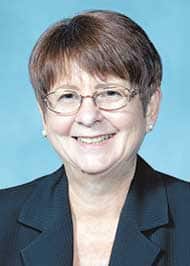
We should all celebrate the many successes that court participants have experienced.
Over the past 26 years, drug courts have served more than 1.4 million individuals nationally according to the National Association of Drug Court Administrators. They have been shown to significantly improve substance-abuse outcomes, substantially reduce drug abuse and crime and do so at less expense than any other justice strategy. Drug courts save up to $27 for every $1 invested and reduce recidivism by 75 percent. They also bring together public safety and public health professionals in the fight against drug abuse and crime.
Our adult drug court started in 2005 with Judge William M. Ray presiding, later succeeded by Judge Tom Davis in 2012. We added a second court, led by Judge Kathryn Schrader, last year. To date, the program has graduated 178 participants. We formed a juvenile drug court in 2013 with Judge Robert Waller presiding. That program has graduated 12 participants so far.
Gwinnett also began a DUI court in 2005 that has graduated 373 participants. A second court was added in 2006. The DUI Court program provides intensive alcohol treatment with judicial oversight to multiple DUI offenders. Chief State Court Judge Pamela South and Judge Carla Brown have both overseen DUI Court in the past, while Judge Iannazzone and Judge Shawn Bratton preside over the two divisions of DUI Court today.
In 2013, we formed a mental health court, led by Judge Karen E. Beyers, which has graduated four participants to date. Mental health treatment providers, prosecutors, defense attorneys, and community advocates work together to provide treatment rather than punishment. It targets offenders whose crime would not have occurred had it not been for their mental illness. It links participants to services such as counseling and treatment as well as needed social services such as Social Security, housing, substance abuse treatment, and employment.
Gwinnett also has a parent accountability court, led by Judge Kathryn Schrader and director Kristen Howard, along with the Georgia Division of Child Support Services. Its goal is to educate and equip participants to be better providers, putting their children first, building better families, and preventing recidivism. Collaboration between the judiciary, the business community, nonprofits, and the faith community has demonstrated success statewide in reducing outstanding child support obligations, improving family dynamics, saving the state the high cost of incarceration, and reducing the need for public assistance and public medical care. Five participants have graduated since this court was set up last year.
Our newest such program is a veterans’ treatment court that began in January with Judge Karen Beyers presiding. It links participants to VA benefits and provides substance abuse and mental health treatment to U.S. military veterans who have committed felony crimes due to mental illness or drug/alcohol addiction.
Overall, these programs are making a difference in Gwinnett County by offering appropriate treatment instead of punishment. It saves money in the long run and reduces return trips to our jail and prison. Please join me in saluting all the dedicated individuals who make it work.

